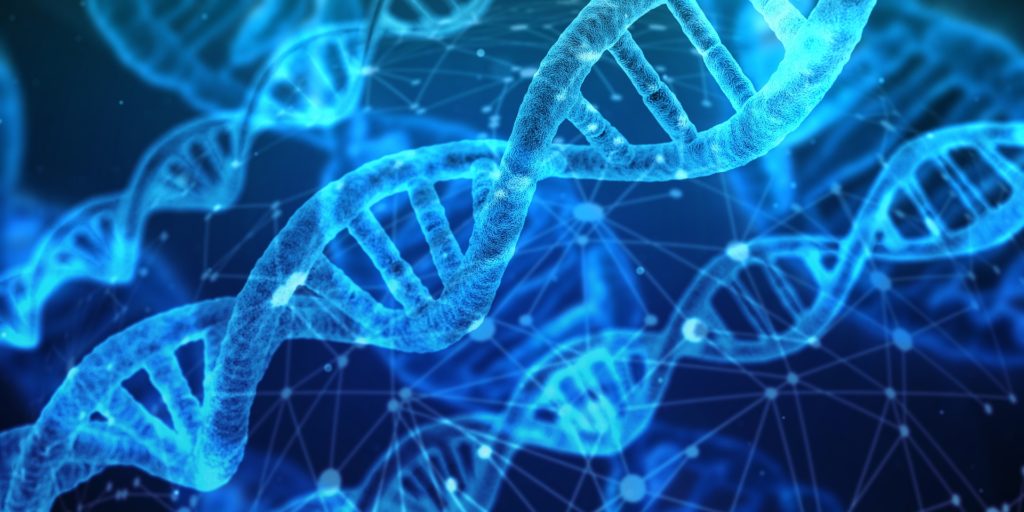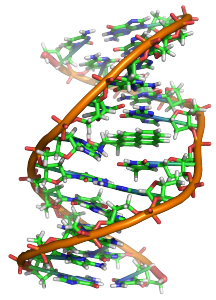- Calls to this hotline are currently being directed to Within Health, Fay or Eating Disorder Solutions
- Representatives are standing by 24/7 to help answer your questions
- All calls are confidential and HIPAA compliant
- There is no obligation or cost to call
- Eating Disorder Hope does not receive any commissions or fees dependent upon which provider you select
- Additional treatment providers are located on our directory or samhsa.gov
A Systematic Review of the Genetics and Epigenetics in Eating Disorders

Dr. Mark Gold’s Research You Can Use
The identification of the first genome-wide significant locus, discussions surrounding epigenetic mechanism involved in linking environmental factors with disease onset and the remarkably progressed genomic discovery in anorexia nervosa have built a solid foundation for future research.
In light of the existing body of evidence on genetic and epigenetic factors in eating disorders, a recent systematic review of all relevant literature aimed to inspire and shape future research and directions in this field.
The component of genetics in eating disorders
Contrary to popular belief that they are a lifestyle choice, eating disorders are actually serious and often fatal illnesses stemming from severe discrepancies in a person’s thinking and eating behaviors. Obsession with food, body weight, and shape have proven to be significant indicators of an eating disorder. Common eating disorders include anorexia nervosa, bulimia nervosa, and binge-eating disorder.
Eating disorders are highly complex psychiatric illnesses shaped by an array of biological, genetic and environmental factors. The discovery of a genetic component of eating disorders is often met with surprise owing to the popular misperception that these are disorders of individual autonomy. Yet, eating disorders are highly heritable.
The associated risk for the probability of anorexia nervosa is increased fourfold in family members of an anorexic patient and female relatives of anorexia nervosa patients are almost eleven times more likely to develop anorexia nervosa than individuals who are not related to an anorexia nervosa patient. Individuals with a relative struggling with anorexia or bulimia are also at a higher risk of developing either of the disorders, indicating a genetic correlation between the two, even though limited. Similarly, binge eating disorder is also observed to aggregate within families, unrelated to obesity.
Present review
Based upon the PRISMA guidelines, two independent authors initiated a search with PubMed and Web of Science, identifying 18 journal articles and conference abstracts, published within January 2003 and October 2017. The review aimed to critically evaluate the literature on genetic research conducted on the three major eating disorders.
Out of this selected literature, 13 articles and abstracts focused upon anorexia nervosa, six addressed bulimia nervosa, and one was related to binge eating disorder. All articles were meticulously reviewed and included a critical discussion of field-specific methodological considerations.
These genetic studies were then reviewed through linkage analysis, candidate-gene association studies, genome-wide association studies and study of rare variants in eating disorders. The review also included a translational perspective by covering animal models of ED-related phenotypes.
Results and future directions
Most of the epigenetic analyses of eating disorders were demonstrated to have investigated methylation at candidate genes focusing upon anorexia and bulimia nervosa in very small samples with considerable sample overlap across the published studies. The small sample was the key takeaway.
Three studies utilized micro-array-based technologies to examine DNA methylation across the genome of anorexia nervosa and binge-eating disorder patients. Overall, the results remained ambiguous and tended to be fundamentally exploratory in nature. The field of epigenetics in eating disorders remains in its infancy.
 The authors encouraged the scientific community to apply methodologically sound approaches using genome-wide designs including epigenome-wide association studies (EWAS), to increase sample sizes, and to widen the focus to include all eating disorder types.
The authors encouraged the scientific community to apply methodologically sound approaches using genome-wide designs including epigenome-wide association studies (EWAS), to increase sample sizes, and to widen the focus to include all eating disorder types.
Over the last few decades, we have witnessed an increased understanding of the etiology of and role of genetics in anorexia nervosa, bulimia nervosa, and binge eating disorders.
The foremost limitation in identifying genetic variants for eating disorders is gathering a large enough sample size to produce genome-wide significant results effectively. Hence, future research efforts need to prioritize the recruitment of large-sized case-control cohorts to maximize statistical power.
Gender variation with a sample should also be paid close attention to, in order to make valid and significant discoveries about the genetic risk factors for eating disorders in men. The role of environmental and individual risk factors can exert complications in epigenetic research, especially since large sample sizes are required for GWAS.
This may warrant exploring and identifying significant and replicable epigenetic risk factors to reduce complications for future research. It is also important to pay attention to rare variants alongside common variants, which may yield better chances of explaining the genetic contributions to eating disorders.
The comorbidity of eating disorder with other conditions such as anxiety, OCD and substance use disorders are suggestive of shared, overlapping genetic and neural networks that regulate feeding, reward and anxiety. The lack of viable experimental laboratory models for willful starvation is also quite limiting.
A global or all-encompassing approach of constructing valid eating disorder animal models that aim at determining genetic influences on feeding and metabolism alongside other relevant phenotypes promises a more comprehensive and complete insight into genes. This may consequently represent more specific and effective pharmacotherapeutic targets for eating disorders.
References:
1. https://www.nature.com/articles/s41380-018-0254-7
2. https://www.ncbi.nlm.nih.gov/pubmed/30353170
3. https://www.nimh.nih.gov/health/topics/eating-disorders/index.shtml
4. https://www.karger.com/Article/FullText/484525
About the Author:
 Mark S. Gold, M.D. served as Professor, the Donald Dizney Eminent Scholar, Distinguished Professor and Chair of Psychiatry from 1990-2014.
Mark S. Gold, M.D. served as Professor, the Donald Dizney Eminent Scholar, Distinguished Professor and Chair of Psychiatry from 1990-2014.
Dr. Gold was the first Faculty from the College of Medicine to be selected as a University-wide Distinguished Alumni Professor and served as the 17th University of Florida’s Distinguished Alumni Professor.
Learn more about Mark S. Gold, MD
About the Transcript Editor:
 A journalist and social media savvy content writer with extensive research, print and on-air interview skills, Sana Ahmed has previously worked as staff writer for a renowned rehabilitation institute, a content writer for a marketing agency, an editor for a business magazine and been an on-air news broadcaster.
A journalist and social media savvy content writer with extensive research, print and on-air interview skills, Sana Ahmed has previously worked as staff writer for a renowned rehabilitation institute, a content writer for a marketing agency, an editor for a business magazine and been an on-air news broadcaster.
Sana graduated with a Bachelors in Economics and Management from London School of Economics and began a career of research and writing right after. Her recent work has largely been focused upon mental health and addiction recovery.
The opinions and views of our guest contributors are shared to provide a broad perspective of eating disorders. These are not necessarily the views of Eating Disorder Hope, but an effort to offer a discussion of various issues by different concerned individuals.
We at Eating Disorder Hope understand that eating disorders result from a combination of environmental and genetic factors. If you or a loved one are suffering from an eating disorder, please know that there is hope for you, and seek immediate professional help.
Published on January 10, 2019.
Reviewed & Approved on January 10, 2019, by Jacquelyn Ekern MS, LPC
Published on EatingDisorderHope.com

The EatingDisorderHope.com editorial team comprises experienced writers, editors, and medical reviewers specializing in eating disorders, treatment, and mental and behavioral health.

